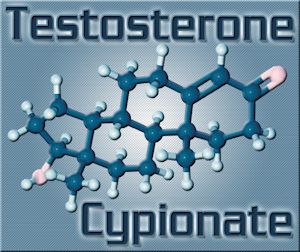Introduction to Chronic Fatigue and Testosterone
Chronic fatigue syndrome (CFS) is a debilitating condition characterized by extreme tiredness that does not improve with rest and can worsen with physical or mental activity. It affects millions of Americans, with a notable impact on men's quality of life. Recent studies have begun to explore the link between low testosterone levels and chronic fatigue, suggesting a potential therapeutic role for testosterone supplementation, such as testosterone undecanoate.
Understanding Testosterone Undecanoate
Testosterone undecanoate is a long-acting ester of testosterone, designed for intramuscular injection, which provides a sustained release of the hormone over time. This formulation is advantageous as it minimizes the need for frequent dosing, thereby improving patient compliance and maintaining stable serum testosterone levels. It is particularly useful in treating hypogonadism, a condition where the body does not produce enough testosterone, which can manifest as fatigue among other symptoms.
The Connection Between Low Testosterone and Chronic Fatigue
Research has established a significant association between low testosterone levels and symptoms of chronic fatigue. Testosterone plays a crucial role in energy metabolism, muscle strength, and overall vitality. When levels are deficient, men may experience persistent tiredness, reduced physical endurance, and diminished mental alertness, all of which are hallmarks of CFS. By addressing this hormonal imbalance, testosterone undecanoate could potentially alleviate these symptoms.
Clinical Evidence Supporting Testosterone Undecanoate
Several clinical trials have investigated the efficacy of testosterone undecanoate in managing symptoms related to low testosterone, including fatigue. A notable study published in the *Journal of Clinical Endocrinology & Metabolism* found that men treated with testosterone undecanoate experienced significant improvements in fatigue scores compared to those receiving placebo. These findings suggest that testosterone replacement therapy could be a viable option for men suffering from chronic fatigue associated with hypogonadism.
Safety and Monitoring of Testosterone Therapy
While testosterone undecanoate offers promising benefits, it is essential to consider the safety profile and necessary monitoring. Potential side effects include increased hematocrit, acne, and mood swings. Regular monitoring of testosterone levels, hematocrit, and prostate health is crucial to ensure the therapy's safety and efficacy. Patients should be under the care of a healthcare provider who can tailor the treatment to their specific needs and monitor for any adverse effects.
Integrating Testosterone Undecanoate into Chronic Fatigue Management
For American men diagnosed with both chronic fatigue and hypogonadism, testosterone undecanoate may be a valuable component of their treatment plan. It should be integrated into a comprehensive approach that includes lifestyle modifications, such as regular exercise, balanced diet, and adequate sleep. Additionally, psychological support and stress management techniques can enhance the overall effectiveness of the therapy.
Future Directions and Research
The role of testosterone undecanoate in managing chronic fatigue is an evolving field, with ongoing research aimed at better understanding its mechanisms and optimizing its use. Future studies may explore the long-term benefits and risks, as well as the potential synergy with other therapeutic modalities. As the scientific community continues to unravel the complexities of chronic fatigue, testosterone undecanoate stands as a promising tool in the quest to improve the health and well-being of American men.
Conclusion
Testosterone undecanoate represents a significant advancement in the management of chronic fatigue among American men with hypogonadism. By addressing the underlying hormonal deficiency, this therapy offers hope for alleviating the debilitating symptoms of CFS. As with any medical treatment, it is essential to approach testosterone therapy with a thorough understanding of its benefits and risks, ensuring that it is used safely and effectively to enhance the quality of life for those affected.
Contact Us Today For A Free Consultation

- Testosterone Undecanoate: Enhancing Athletic Performance in American Males - Benefits and Risks [Last Updated On: March 5th, 2025] [Originally Added On: March 5th, 2025]
- Testosterone Undecanoate: Long-Acting Treatment for Hypogonadism in American Men [Last Updated On: March 16th, 2025] [Originally Added On: March 16th, 2025]
- Maximizing Testosterone Undecanoate Benefits: Diet, Exercise, and Lifestyle for American Men [Last Updated On: March 17th, 2025] [Originally Added On: March 17th, 2025]
- Testosterone Undecanoate: A Long-Acting TRT Option for American Males with Hypogonadism [Last Updated On: March 17th, 2025] [Originally Added On: March 17th, 2025]
- Testosterone Undecanoate: Enhancing Life Quality for American Males with Low Testosterone [Last Updated On: March 18th, 2025] [Originally Added On: March 18th, 2025]
- Testosterone Undecanoate: A Breakthrough in Treating Andropause for American Men [Last Updated On: March 19th, 2025] [Originally Added On: March 19th, 2025]
- Testosterone Undecanoate Therapy: Importance of Regular Monitoring for American Men [Last Updated On: March 20th, 2025] [Originally Added On: March 20th, 2025]
- Safety Profile of Testosterone Undecanoate in American Males: Monitoring and Management [Last Updated On: March 21st, 2025] [Originally Added On: March 21st, 2025]
- Testosterone Undecanoate: Managing Deficiency in Diverse American Male Demographics [Last Updated On: March 21st, 2025] [Originally Added On: March 21st, 2025]
- Testosterone Undecanoate Therapy Enhances Sleep Quality in American Men with Hypogonadism [Last Updated On: March 21st, 2025] [Originally Added On: March 21st, 2025]
- Testosterone Undecanoate's Impact on Hair Growth in American Males: Insights and Management [Last Updated On: March 22nd, 2025] [Originally Added On: March 22nd, 2025]
- Testosterone Undecanoate: A Solution for Muscle Loss in Aging American Males [Last Updated On: March 22nd, 2025] [Originally Added On: March 22nd, 2025]
- Testosterone Undecanoate: Enhancing Fertility in American Men [Last Updated On: March 22nd, 2025] [Originally Added On: March 22nd, 2025]
- Testosterone Undecanoate: Cultural Perceptions and Healthcare Navigation in American Men [Last Updated On: March 22nd, 2025] [Originally Added On: March 22nd, 2025]
- Testosterone Undecanoate's Impact on Cognitive Function in American Men: A Review [Last Updated On: March 22nd, 2025] [Originally Added On: March 22nd, 2025]
- Testosterone Undecanoate: A Promising Solution for Weight Management in American Men [Last Updated On: March 23rd, 2025] [Originally Added On: March 23rd, 2025]
- Testosterone Undecanoate: Enhancing Emotional Well-being in American Males [Last Updated On: March 23rd, 2025] [Originally Added On: March 23rd, 2025]
- Testosterone Undecanoate: A Promising Therapy for Hypogonadism in American Male Cancer Survivors [Last Updated On: March 23rd, 2025] [Originally Added On: March 23rd, 2025]
- Testosterone Undecanoate: Enhancing Injury Recovery in American Males [Last Updated On: March 23rd, 2025] [Originally Added On: March 23rd, 2025]
- Testosterone Undecanoate: Enhancing Metabolic Health in American Men [Last Updated On: March 23rd, 2025] [Originally Added On: March 23rd, 2025]
- Testosterone Undecanoate: Effects on Blood Pressure in American Men with Hypogonadism [Last Updated On: March 23rd, 2025] [Originally Added On: March 23rd, 2025]
- Testosterone Undecanoate: A Vital Therapy for American Male Veterans' Health [Last Updated On: March 24th, 2025] [Originally Added On: March 24th, 2025]
- Testosterone Undecanoate: Efficacy and Safety in American Men - A Clinical Overview [Last Updated On: March 24th, 2025] [Originally Added On: March 24th, 2025]
- Testosterone Undecanoate: Managing Side Effects for American Men's Health [Last Updated On: March 24th, 2025] [Originally Added On: March 24th, 2025]
- Testosterone Undecanoate's Impact on Eye Health in American Men: Benefits and Risks [Last Updated On: March 24th, 2025] [Originally Added On: March 24th, 2025]
- Testosterone Undecanoate: A Promising Treatment for Sexual Dysfunction in American Men [Last Updated On: March 24th, 2025] [Originally Added On: March 24th, 2025]
- Testosterone Undecanoate's Impact on Immune Function in American Males: Benefits and Risks [Last Updated On: March 24th, 2025] [Originally Added On: March 24th, 2025]
- Testosterone Undecanoate: A Promising Treatment for Osteoporosis in American Men [Last Updated On: March 24th, 2025] [Originally Added On: March 24th, 2025]
- Testosterone Undecanoate's Impact on Respiratory Health in American Men: Benefits and Risks [Last Updated On: March 24th, 2025] [Originally Added On: March 24th, 2025]
- Testosterone Undecanoate: Enhancing Endurance in American Men [Last Updated On: March 24th, 2025] [Originally Added On: March 24th, 2025]
- Testosterone Undecanoate: Enhancing Skin Health in American Men [Last Updated On: March 25th, 2025] [Originally Added On: March 25th, 2025]
- Testosterone Undecanoate: Impacts on American Male Longevity and Health [Last Updated On: March 25th, 2025] [Originally Added On: March 25th, 2025]
- Testosterone Undecanoate's Impact on Dental Health in American Males: A Comprehensive Review [Last Updated On: March 25th, 2025] [Originally Added On: March 25th, 2025]
- Testosterone Undecanoate: Dispelling Myths and Understanding Benefits for Hypogonadism Treatment [Last Updated On: March 26th, 2025] [Originally Added On: March 26th, 2025]
- Testosterone Undecanoate's Impact on Digestive Health in American Males: Benefits and Risks [Last Updated On: March 26th, 2025] [Originally Added On: March 26th, 2025]
- Testosterone Undecanoate: Economic Impact and Healthcare Benefits for American Men [Last Updated On: March 26th, 2025] [Originally Added On: March 26th, 2025]
- Testosterone Undecanoate: A Promising Stress Management Tool for American Males [Last Updated On: March 26th, 2025] [Originally Added On: March 26th, 2025]
- Testosterone Undecanoate's Impact on Joint Health in American Males: Benefits and Risks [Last Updated On: March 26th, 2025] [Originally Added On: March 26th, 2025]
- Testosterone Undecanoate's Impact on Kidney Function in American Men: A Comprehensive Review [Last Updated On: March 26th, 2025] [Originally Added On: March 26th, 2025]
- Testosterone Undecanoate Enhances Skin Elasticity in American Men with Hypogonadism [Last Updated On: March 26th, 2025] [Originally Added On: March 26th, 2025]
- Testosterone Undecanoate's Impact on Liver Health in American Men: A Comprehensive Review [Last Updated On: March 27th, 2025] [Originally Added On: March 27th, 2025]
- Testosterone Undecanoate: Dosage Adjustments and Monitoring for American Men [Last Updated On: March 27th, 2025] [Originally Added On: March 27th, 2025]
- Testosterone Undecanoate: Enhancing Diabetes Management in American Males [Last Updated On: March 27th, 2025] [Originally Added On: March 27th, 2025]
- Testosterone Undecanoate: Optimizing Hypogonadism Treatment for American Men [Last Updated On: March 27th, 2025] [Originally Added On: March 27th, 2025]
- Testosterone Undecanoate's Impact on Cholesterol Levels in American Men: A Comprehensive Review [Last Updated On: March 27th, 2025] [Originally Added On: March 27th, 2025]
- Testosterone Undecanoate: Enhancing Cognitive Function in American Men [Last Updated On: March 28th, 2025] [Originally Added On: March 28th, 2025]
- Testosterone Undecanoate's Impact on Nail Health in American Males: Benefits and Risks [Last Updated On: March 28th, 2025] [Originally Added On: March 28th, 2025]
- Testosterone Undecanoate: A Novel Approach to Managing Allergies in American Males [Last Updated On: March 29th, 2025] [Originally Added On: March 29th, 2025]
- Testosterone Undecanoate: A Promising Therapy for Chronic Pain in American Males [Last Updated On: March 30th, 2025] [Originally Added On: March 30th, 2025]
- Testosterone Undecanoate's Impact on Hearing in American Males: A Comprehensive Review [Last Updated On: March 30th, 2025] [Originally Added On: March 30th, 2025]
- Testosterone Undecanoate: Benefits and Considerations for American Men's Reproductive Health [Last Updated On: April 1st, 2025] [Originally Added On: April 1st, 2025]
- Testosterone Undecanoate: Enhancing Muscle, Reducing Fat in American Males [Last Updated On: April 1st, 2025] [Originally Added On: April 1st, 2025]
- Testosterone Undecanoate and Hair Loss: Insights for American Men on TRT [Last Updated On: April 2nd, 2025] [Originally Added On: April 2nd, 2025]
- Testosterone Undecanoate: Enhancing Immune Response in American Men [Last Updated On: April 4th, 2025] [Originally Added On: April 4th, 2025]
- Monitoring Testosterone Undecanoate Treatment: Key Parameters and Guidelines for American Men [Last Updated On: April 4th, 2025] [Originally Added On: April 4th, 2025]
- Testosterone Undecanoate's Impact on Blood Clotting in American Males: Risks and Management [Last Updated On: April 5th, 2025] [Originally Added On: April 5th, 2025]
- Testosterone Undecanoate: A Promising Treatment for Anxiety in American Males [Last Updated On: April 6th, 2025] [Originally Added On: April 6th, 2025]
- Testosterone Undecanoate: Enhancing Muscle Recovery and Performance in American Men [Last Updated On: April 7th, 2025] [Originally Added On: April 7th, 2025]
- Testosterone Undecanoate's Impact on Heart Rate in American Men: Safety and Efficacy [Last Updated On: April 8th, 2025] [Originally Added On: April 8th, 2025]
- Testosterone Undecanoate's Impact on Blood Sugar in American Males: Benefits and Risks [Last Updated On: April 9th, 2025] [Originally Added On: April 9th, 2025]
- Testosterone Undecanoate: A Promising Treatment for Depression in American Males [Last Updated On: April 9th, 2025] [Originally Added On: April 9th, 2025]
- Testosterone Undecanoate's Impact on Skin Pigmentation in American Males: Mechanisms and Clinical Insights [Last Updated On: April 9th, 2025] [Originally Added On: April 9th, 2025]
- Managing Side Effects of Testosterone Undecanoate Therapy in American Men [Last Updated On: April 10th, 2025] [Originally Added On: April 10th, 2025]
- Testosterone Undecanoate: Enhancing Muscle Strength in American Men [Last Updated On: April 10th, 2025] [Originally Added On: April 10th, 2025]
- Testosterone Undecanoate: Enhancing Male Sexual Health in American Men [Last Updated On: April 11th, 2025] [Originally Added On: April 11th, 2025]
- Testosterone Undecanoate: Enhancing Bone Healing in American Men [Last Updated On: April 13th, 2025] [Originally Added On: April 13th, 2025]
- Testosterone Undecanoate's Impact on Thermoregulation in American Males: Benefits and Research Needs [Last Updated On: April 15th, 2025] [Originally Added On: April 15th, 2025]
Word Count: 583





















